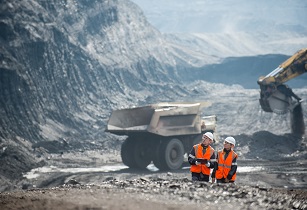Johan Coetzee, global director of mining and metals at dss⁺, continues his examination of collaboration in Africa’s mining and metals sector
Click here for part one of Coetzee's answers.
AR: Do you believe the African mining industry has become more open to collaboration in recent years?
JC: The African mining industry has indeed shown a growing openness to collaboration in recent years and a few examples are starting to demonstrate an environment that is more collaboration-friendly than before. Several factors are contributing to this shift, including regulatory reforms, growing awareness of shared challenges and sustainability objectives, and the establishment of industry associations and platforms.
Regulatory reforms that encourage collaboration, local content development and community engagements have been adopted by many African countries to attract foreign investment and promote sustainable mining practices. For example, the African Mining Vision (AMV), adopted by the African Union in 2009, that promotes collaboration among African countries to ensure that mining contributes to sustainable development. It emphasises regional integration, knowledge-sharing, and capacity building, encouraging collaboration on various aspects of the mining value chain.
The establishment of industry associations and platforms has facilitated collaboration among mining companies, governments, and other stakeholders. These organisations provide a space for dialogue, knowledge-sharing, and joint initiatives, fostering a collaborative environment within the industry. Associations such as the ICMM, Chamber of Mines in South Africa, the Mining Association of Zambia, and the Ghana Chamber of Mines have facilitated collaboration among mining companies, enabling collective action on industry-wide issues and promoting sustainable practices.
The African mining industry faces shared challenges such as infrastructure development, skills shortage, and social and environmental impacts. Similarly, there is a growing recognition of the importance of environmental, social, and governance (ESG) factors in the mining industry and that collaboration is necessary to address sustainability challenges, meet ESG standards, and improve the industry's reputation. Public-Private Partnerships have emerged in various African countries to promote collaboration between governments, mining companies, and local communities to address infrastructure needs, skills development, and community development, fostering a collaborative approach to mining operations.
While collaboration in the African mining industry has made progress, there is still room for further improvement. Continued efforts to strengthen collaboration, enhance transparency, and engage all stakeholders will contribute to sustainable mining practices, responsible resource development, and shared benefits for local communities and the industry.
AR: What is being done to further encourage collaboration on the continent?
JC: Fostering collaboration needs support, and work is being done by industry bodies, governments, stakeholders and sustainability organisations to create the foundations for successful collaboration. Building frameworks, creating platforms for collaboration, and implementing standards are all ways to encourage sharing formally and informally.
For example, the Southern African Development Community (SADC) and the Economic Community of West African States (ECOWAS), are working towards harmonising mining policies, facilitating cross-border infrastructure development, and encouraging knowledge-sharing among member countries. Government Policies and regulations that encourage collaboration in the mining sector, including requirements for local content development, community engagement, and environmental stewardship, are becoming more commonplace. Establishing robust frameworks that support collaboration and strengthening public-private partnerships to address shared challenges such as infrastructure development, skills training, and community development, can leverage the strengths and resources of different stakeholders to achieve sustainable mining practices and inclusive growth.
Industry associations such as the International Council of Mining and Metals (ICMM) are also providing opportunities for collaboration by implementing co-developed standards such as the recently released Global Industry Standard on Tailings Management, a freely available standard developed by the ICMM, the UN (United Nations) Environment Programme, and the Principles for Responsible Investment (PRI). Platforms such as these are being established to promote collaboration and ensure inclusive decision-making.
Sustainability standards and certifications are also starting to provide a framework for responsible mining practices that encourage collaboration among mining companies to meet their sustainability goals and improve overall industry performance. Promoting transparency and accountability in the mining sector is crucial for building trust and encouraging collaboration, and sharing technological innovations and best practices among mining companies can drive efficiency, sustainability, and productivity improvements.
Training programmes, workshops, conferences and other knowledge-sharing activities have a positive impact on sharing best practices, technical expertise, and lessons learned. These initiatives help build the necessary skills and knowledge base for effective collaboration among industry stakeholders. Investing in local capacity development, including skills training, entrepreneurship support, and technology transfer foster collaboration and create a more inclusive mining industry.





















